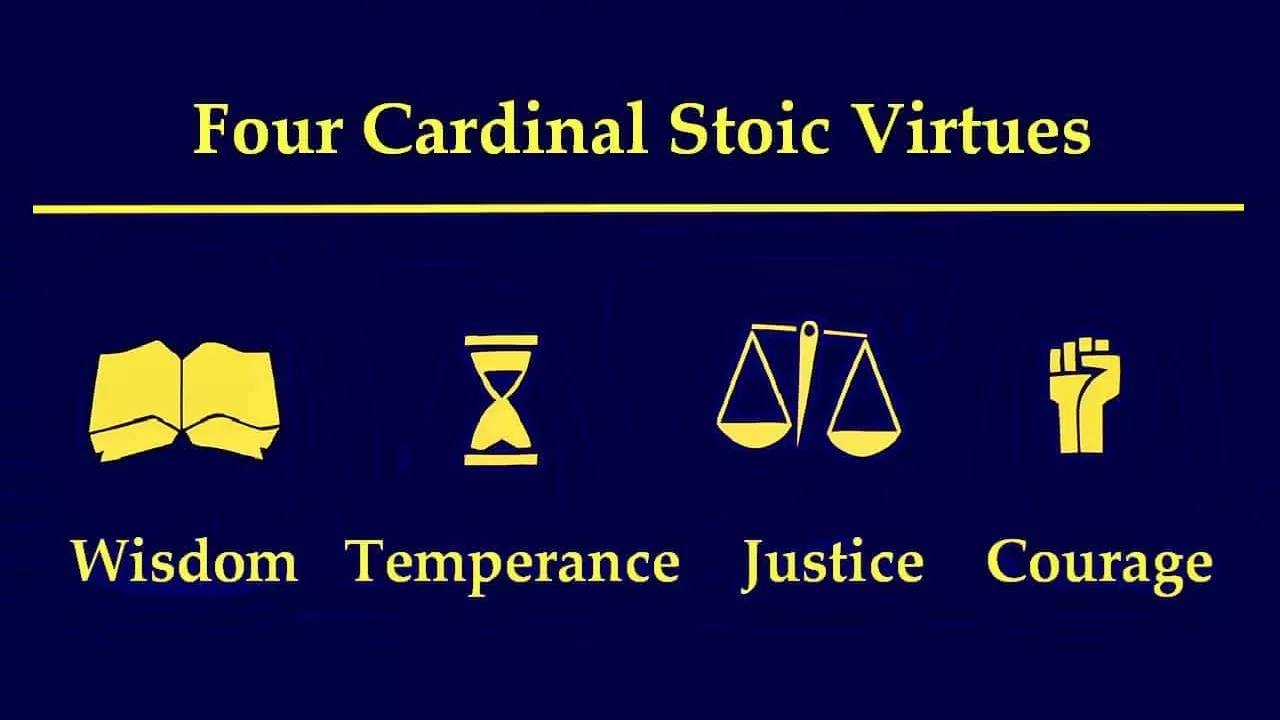Reading time: 5 minutes
— Researched and written by Dr. Sandip Roy.Do you know about the Stoic key to fulfillment in life?
Stoics know that it’s not about the gap between what we have and what we don’t have. Rather, it’s about how we make our desires, wants, and needs align with our purpose in life. That defines our contentment.
In a world full of quick fixes and fleeting pleasures, Stoicism offers a timeless route to a satisfied life: the four cardinal virtues.
Explore the ancient wisdom that can bring genuine happiness to your life, both in the present and in the future.
Here’s how to live a fulfilling life using the Stoic blueprint:
Embrace Sympatheia: The Stoic Path to True Happiness
Sympatheia is a Stoic principle that emphasizes the interconnectedness of all things in the universe. It teaches us that we are not isolated individuals, but rather parts of a larger whole.
When we embrace Sympatheia, we recognize that our actions have consequences for others, and that we have a responsibility to live in a way that promotes the common good.
Sympatheia is not just a personal attribute; it is the very foundation of goodness and the ultimate source of social harmony and happiness. By adopting it, we position ourselves on a path that enriches our own lives and contributes positively to the world around us.
Here are some specific ways in which Sympatheia can lead to true social happiness:
- When we see ourselves as part of a larger whole, we are less likely to feel isolated and alone.
- When we recognize that our actions have consequences for others, we are more likely to act in kind and compassionate ways.
- When we strive to promote the common good, we create a more just and harmonious world for everyone.
Ultimately, Sympatheia shows us that true happiness is not found in material possessions or external circumstances, but in living a life that is consistent with our values and also contributes to the well-being of others.
See Good And Evil Through The Virtue Lens
The Stoic virtues of wisdom, justice, temperance, and courage help us to see beyond the conventional notions of good and evil.
They believed that good and evil are not absolute concepts, but rather matters of perspective. They taught that we can learn to see the world through a “virtue lens,” which allows us to discern the true essence of good and evil.
The four cardinal Stoic virtues are essential and enough for a fulfilling life.
When we act virtuously, we are not simply following a set of rules or norms; rather, we are striving to live in a way that is consistent with our values and that promotes the common good.

Suppose we are faced with a difficult decision, we might initially be tempted to choose the option that is most beneficial to us, even if it is not the most ethical option.
However, if we reflect on the Stoic virtue of courage, we might realize that the most courageous thing to do is to pick the option that is most aligned with our values, even if it is more difficult.
True goodness, according to the Stoics, is found in virtuous actions and a strong moral character. It is not found in external things, such as wealth, fame, or power. When we cultivate the Stoic virtues, we become better people, and we contribute to a better world.
Ultimately, the Stoic virtue lens is a powerful tool for understanding good and evil. It helps us to see the world in a more nuanced and ethical way. And help us become better people and contribute to a better world.
Align Your Will With Nature for Inner Peace
Align your will—prohairesis—with the natural world to minimize negative emotions and misjudgments.
Marcus Aurelius reminds us to “Constantly think of the universe as one living creature, embracing one being and soul; how all is absorbed into the one consciousness of this living creature; how it compasses all things with a single purpose, and how all things work together to cause all that comes to pass, and their wonderful web and texture.”

Evaluate the Worth of External Things
Remember that external pleasures and possessions are only valuable when they contribute to or result from virtue. Reflect on your desires and possessions to ensure they contribute to a virtuous life.
Cultivate Emotional Resilience and Courage
As Seneca and Epictetus taught, virtue alone provides emotional strength and courage, making it sufficient for happiness. Ryan Holiday encapsulates this sentiment: “A Stoic believes they don’t control the world around them, only how they respond—and that they must always respond with courage, temperance, wisdom, and justice.”
Balance Indifference and Virtue
While being indifferent to external circumstances can be beneficial, prioritize virtue above all. Do not let the pursuit of indifference overshadow the essential pursuit of virtue.
Reflect on Your Path to Eudaimonia
If you have not yet found eudaimonia, reassess your decisions. Ensure that you are not overvaluing indifference at the expense of virtuous action.
Pursue Virtue as a Universal Objective
Approach virtue not as a personal right but as a universal goal. It is the foundation of a life well-lived and the key to true happiness.
Choose Virtue Over Material Wealth for True Fulfillment
Understand that virtue is the only necessity for a fulfilling life, far surpassing the value of material wealth.
Make Virtue the Heart of Your Daily Practice
Incorporate virtue into every aspect of your life. Before taking action, pause and reflect on these questions: “Is this sensible?” “Is this fair?” “Am I maintaining self-control?” Let the Stoic virtues guide your decisions and actions every day.
√ Please share it with someone if you found this helpful.
√ Also Read: Beginner’s Guide To Stoic Virtues: Unclutter Your Mind/Life
• Our Story!